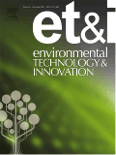
Environmental Technology & Innovation
Scope & Guideline
Leading the Way in Eco-Innovation and Research Excellence
Introduction
Aims and Scopes
- Pollution Management and Remediation:
Research on methods and technologies for the removal of pollutants from soil, water, and air, including studies on the efficacy of bioremediation techniques and the development of novel adsorbents. - Waste Management and Resource Recovery:
Innovative approaches to waste treatment and recycling, emphasizing the transformation of waste materials into valuable products, including biofuels and biodegradable materials. - Sustainable Agricultural Practices:
Exploration of how environmental technologies can enhance agricultural productivity while minimizing ecological impacts, including the use of biofertilizers and phytoremediation. - Climate Change Mitigation and Adaptation:
Studies aimed at understanding the impacts of climate change on environmental processes and developing technologies that contribute to climate resilience. - Technological Innovations in Environmental Monitoring:
Development and application of new technologies for monitoring environmental parameters, including the use of sensors and data analytics to improve environmental management.
Trending and Emerging
- Microbial and Enzymatic Bioremediation:
There is a growing emphasis on utilizing microbial consortia and enzymatic processes for the degradation of pollutants, showcasing advancements in bioremediation technologies. - Nanotechnology in Environmental Applications:
Research on the application of nanomaterials for pollution control and remediation is gaining momentum, highlighting their effectiveness and potential in various environmental contexts. - Circular Economy and Sustainable Practices:
A trend towards integrating circular economy principles into waste management and production processes is evident, reflecting a shift towards sustainability in environmental practices. - Artificial Intelligence and Machine Learning in Environmental Monitoring:
The integration of AI and machine learning for predicting environmental outcomes and optimizing treatment processes is emerging as a significant focus area. - Climate Resilience Technologies:
Innovative technologies aimed at enhancing climate resilience, particularly in agriculture and urban planning, are increasingly featured, addressing the urgent need for adaptation strategies.
Declining or Waning
- Traditional Chemical Treatment Processes:
There is a noticeable decrease in research focused on conventional chemical treatment methods for wastewater, as more sustainable and innovative approaches gain traction. - Single-Use Plastic Alternatives:
While alternatives to single-use plastics were once a primary focus, the rise of comprehensive circular economy models has shifted attention towards more holistic waste management solutions. - Non-Biological Remediation Techniques:
Research on purely mechanical or physical remediation methods is declining as biological and eco-friendly approaches are preferred for their sustainability and effectiveness. - Linear Production Models in Agriculture:
The focus on linear production models is waning, with increasing interest in regenerative practices and circular economy principles that enhance sustainability.
Similar Journals
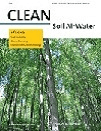
CLEAN-Soil Air Water
Transforming Research into Action for a Healthier PlanetCLEAN-Soil Air Water, an esteemed journal published by Wiley, serves as a vital platform for disseminating research in the fields of environmental chemistry, pollution, and water science and technology. Operating under an Open Access model, it embraces the principles of knowledge sharing, making significant research findings readily accessible to a global audience. With an ISSN of 1863-0650 and an E-ISSN of 1863-0669, the journal has demonstrated its importance in the academic community, reflected in its Scopus rankings within the top quartiles of its categories. Established in 2007 and continuing through to 2024, CLEAN-Soil Air Water offers researchers, professionals, and students an opportunity to explore innovative studies that address pressing environmental challenges, facilitating an exchange of novel ideas and techniques essential for sustainable development. With a publication footprint in Germany and a growing international reputation, this journal is an invaluable resource for those dedicated to advancing the science and practices of environmental stewardship.

Frontiers of Environmental Science & Engineering
Advancing sustainable solutions for a resilient future.Frontiers of Environmental Science & Engineering is a premier journal published by HIGHER EDUCATION PRESS that stands at the forefront of interdisciplinary research in environmental science and engineering. Established in 2013 and converging its scope through 2024, this journal has swiftly ascended to a notable Q1 category in the Environmental Science (Miscellaneous) segment, highlighting its remarkable impact and relevance. With a Scopus ranking of 27 out of 233 in its field, placing it within the top 88th percentile, it serves as a crucial platform for disseminating cutting-edge research, innovative methodologies, and pressing environmental concerns. Researchers, professionals, and students alike will find valuable insights and opportunities for collaboration within its pages. While the journal operates under a subscription model, its commitment to advancing the field makes it an essential resource for those dedicated to addressing the world's environmental challenges, fostering sustainable practices, and pioneering engineering solutions.
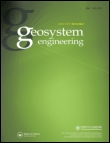
Geosystem Engineering
Exploring innovative approaches in environmental engineering.Geosystem Engineering, published by Taylor & Francis Ltd, is a prominent academic journal focusing on the interdisciplinary fields of Environmental Engineering, Pollution, and Waste Management and Disposal. With an ISSN of 1226-9328 and an E-ISSN of 2166-3394, this journal has been a significant contributor to the scholarly discussions since its inception in 1998 and continues to publish impactful research up to 2024. As a recognized journal within the Q3 category for its respective fields as of 2023, it serves as a vital platform for researchers, professionals, and students aiming to disseminate findings, share innovations, and address pressing environmental challenges. Although it does not currently offer Open Access options, Geosystem Engineering remains essential for those invested in advancing sustainable practices and technologies in geosystems. The journal delivers critical insights that contribute to the development of policies and practices aimed at improving environmental quality and waste management strategies globally.

Resources Environment and Sustainability
Driving Impactful Change Through Rigorous ResearchResources Environment and Sustainability is a premier academic journal published by ELSEVIER, dedicated to advancing knowledge in the fields of environmental science, engineering, and sustainability practices. Recognized for its rigorous peer-review and high-quality research, the journal boasts an impressive impact factor and consistently ranks in the first quartile across multiple categories, including Environmental Engineering, Environmental Science, Management, Monitoring, Policy and Law, and Pollution. With its Scopus rankings placing it among the top journals—#7 in Environmental Science and #12 in Environmental Engineering—this journal provides a vital platform for researchers, professionals, and students seeking to contribute to evolving policies, innovative management strategies, and cutting-edge environmental solutions. Hosted in the Netherlands, Resources Environment and Sustainability is committed to fostering interdisciplinary dialogue and disseminating high-impact research that addresses the pressing challenges of our times. This journal embraces open access principles, ensuring that the wealth of knowledge it publishes remains accessible to a global audience.
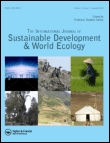
INTERNATIONAL JOURNAL OF SUSTAINABLE DEVELOPMENT AND WORLD ECOLOGY
Transforming sustainability discourse on a global scale.The INTERNATIONAL JOURNAL OF SUSTAINABLE DEVELOPMENT AND WORLD ECOLOGY, published by TAYLOR & FRANCIS INC, stands as a pivotal resource for scholars and practitioners focused on sustainable development and environmental ethics. With an ISSN of 1350-4509 and an E-ISSN of 1745-2627, this journal has made significant strides in the academic landscape since its inception in 1994, aiming to address the complex interrelations between ecological sustainability and development policies on a global scale. Renowned for its rigorous peer-review process, it has achieved a prestigious Q1 classification in both Geography, Planning and Development and Management, Monitoring, Policy and Law, highlighting its influence and relevance among the top tier of scholarly publications. As evidenced by its impressive rankings in Scopus—32nd in Geography and 34th in Environmental Science—this journal plays a critical role in shaping contemporary discourses on sustainable practices. Although it does not currently offer Open Access options, the journal is dedicated to providing a platform for innovative research that not only informs policy-making but also fosters a deeper understanding of global environmental challenges. Whether you are a researcher, policymaker, or student, engaging with the latest findings published in this journal will enhance your insight into sustainable development paradigms.

WASTE MANAGEMENT & RESEARCH
Advancing sustainable solutions for a cleaner tomorrow.WASTE MANAGEMENT & RESEARCH, published by SAGE PUBLICATIONS LTD, is a premier journal dedicated to advancing the field of waste management and environmental concern. Established in 1983, this esteemed publication spans a comprehensive range of topics within Environmental Engineering, Pollution, and Waste Management and Disposal, with remarkable standings including a Q1 ranking in Environmental Engineering and a Q2 ranking in both Pollution and Waste Management and Disposal as of 2023. With an impressive Scopus ranking, placing it in the top percentiles of its categories, the journal serves as a vital resource for researchers, professionals, and students seeking to explore innovative solutions to waste management challenges. Although not an open access journal, its rigorous peer-review process ensures high-quality and novel research is made available to the academic community. Located in London, UK, WASTE MANAGEMENT & RESEARCH continues to be influential in shaping policies and practices that impact sustainable waste management practices worldwide.

ENVIRONMENTAL MANAGEMENT
Fostering dialogue on sustainable environmental practices.ENVIRONMENTAL MANAGEMENT, published by Springer, stands at the forefront of advancing sustainability and ecological stewardship in the fields of Ecology, Global and Planetary Change, and Pollution. With an impressive tracking history from 1977 to 2024 and prestigious quartile rankings reflecting its significant impact (Q1 in Ecology and Q2 in both Global and Planetary Change and Pollution), this journal engages a wide range of stakeholders, including researchers, policymakers, and environmental professionals. The journal is a vital resource for those dedicated to addressing pressing global environmental challenges, publishing rigorous interdisciplinary research that informs policy and practice. While it does not offer open access, its content remains accessible through institutional subscriptions. Located in the heart of New York, ENVIRONMENTAL MANAGEMENT is dedicated to fostering a substantive dialogue on innovative approaches to environmental preservation and management.

REVIEWS IN ENVIRONMENTAL SCIENCE AND BIO-TECHNOLOGY
Advancing Sustainability Through Interdisciplinary InsightsREVIEWS IN ENVIRONMENTAL SCIENCE AND BIO-TECHNOLOGY is a leading academic journal published by Springer, focusing on the interdisciplinary study and advancement of environmental science and biotechnological applications. With an impressive impact factor that places it in the top quartile of its categories, this journal has consistently ranked highly (Q1) in vital fields such as Applied Microbiology and Biotechnology, Environmental Engineering, Pollution, and Waste Management and Disposal, reflecting its significant contribution to these domains. Established in 2002 and continuing to publish cutting-edge research, the journal primarily caters to researchers, professionals, and students who seek to stay abreast of the latest findings and methodologies in environmental sustainability and biotechnological innovations. While it does not currently offer open-access options, subscribers have access to a wealth of comprehensive reviews and original articles that explore the ever-evolving challenges and solutions in environmental science. Located in the Netherlands, REVIEWS IN ENVIRONMENTAL SCIENCE AND BIO-TECHNOLOGY is instrumental in bridging the gap between scientific research and practical application, promoting a collaborative approach to addressing global environmental issues.
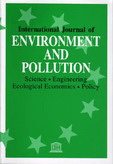
INTERNATIONAL JOURNAL OF ENVIRONMENT AND POLLUTION
Exploring the Complexities of Pollution and Ecosystem HealthInternational Journal of Environment and Pollution is a pivotal publication in the field of environmental science, dedicated to advancing knowledge concerning pollution and its multifaceted impacts on ecosystems and human health. Published by InderScience Enterprises Ltd, this journal, which has been in circulation since 1991, serves as a vital platform for researchers, professionals, and students interested in the management, monitoring, policy, and law associated with environmental issues. With an ISSN of 0957-4352 and E-ISSN 1741-5101, it offers a critical perspective on pollution challenges, emphasizing Waste Management and Disposal. Although placed in the Q4 quartile of its categories, it remains an important resource for understanding the complexities of environmental impact, contributing to policy formulation and ecological research. The journal does not offer Open Access, but it can be accessed through various academic libraries and institutions that value comprehensive studies in environmental management. Engage with the latest findings and discussions that address pressing environmental concerns today!

Asian Journal of Water Environment and Pollution
Fostering impactful discussions on water pollution management.Asian Journal of Water Environment and Pollution is a leading academic journal published by IOS PRESS, dedicated to advancing the field of water science and technology, as well as pollution management. With its ISSN 0972-9860 and E-ISSN 1875-8568, this journal serves as a pivotal platform for researchers, professionals, and academics alike who are keen to explore innovative solutions and interdisciplinary approaches toward water-related challenges and environmental issues. Although currently positioned in the Q4 category for both pollution and water science & technology, the journal aims to foster impactful research and discussions that can enhance the understanding and treatment of water pollution. The Asian Journal of Water Environment and Pollution not only plays a crucial role in disseminating knowledge but also encourages the sharing of findings from unique geographic perspectives, particularly from Asia. As the field evolves, this journal is poised to become a vital resource for those looking to contribute to sustainable water management practices and pollution reduction strategies.